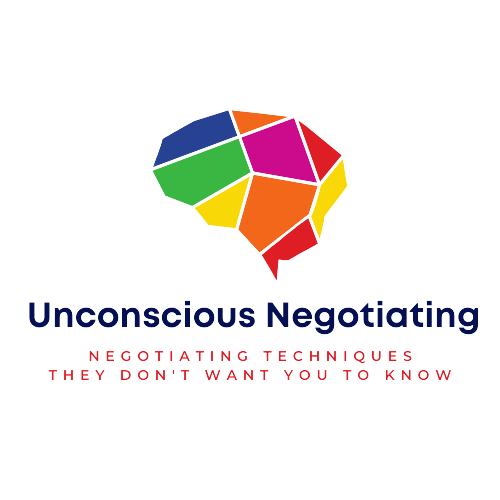Negotiating has been at the heart of business operations since time immemorial. Knowing how to negotiate effectively is a crucial skill every professional should possess, regardless of their industry.
This blog post aims to equip you with the knowledge and strategies required to navigate the complex world of negotiation. We will peel back the layers, examine negotiation techniques, and demonstrate how applying these can drastically improve your success in both business and life.
Whether you’re bartering a business agreement or discussing terms with colleagues or clients, negotiation skills can put you at a considerable advantage.
If you’re ready to build confidence, foster better relationships, and advance in your career, read on to equip yourself with the negotiation skills necessary in today’s business world. We believe that everyone can become a better negotiator. Your journey starts here.
Understanding the Negotiation Process
Negotiation is not merely exchanging proposals until an agreement is met. Understanding the intricacy of the negotiation process first is a crucial step.
This process begins with preparation; take time to comprehend what you want the outcome to be, and explore the interests of the other party.
The next stage is opening the conversation. Here, rapport-building and setting a friendly tone is vital in initiating successful negotiations.
The exploring phase follows where both parties discuss their interests, priorities, limitations and potential alternative options.
Then comes the bargaining stage. Concessions are made, compromises reached, and an agreement begins to form.
Finally, there is closure. Here an agreement is formalised.
Remember, negotiation isn’t a competition, it’s an opportunity for mutual benefit. Each stage is as equally important as the next and a thorough understanding of this process enables effective negotiation.
Importance of Thorough Preparation

In every negotiation, thorough preparation plays a pivotal role in determining the outcome. It is the bedrock on which successful negotiation strategies are built.
Think of it like this: Would you go into an important meeting without doing your homework? Nonetheless, preparation is much more than just gathering fast facts.
It involves understanding your own goals, knowing what you’re willing to compromise on, and identifying your negotiation strategies. It’s also about understanding the other party’s needs, goals, and potential negotiation tactics.
Simply put, the more you know going into a negotiation, the more likely you are to come out victorious. Therefore, thorough preparation is not a choice but a necessity in any negotiation. It can spell the difference between a productive conversation and a wasted opportunity.
Identifying Your Bargaining Style

Identifying your unique bargaining style is the first step to mastering negotiation skills. Every individual has a unique approach, influenced by factors like personality traits, cultural background, and past experiences.
Start by examining past negotiations you have participated in. Look for patterns in your language use, body language, and conflict resolution approaches.
Are you assertive or accommodating? Collaborative or competitive? You may even fall somewhere between these extremes, or shift styles depending on the situation.
Remember that every style has its strengths and weaknesses. Identifying your bargaining style is not about changing it, but refining it, understanding when to use it, and learning how to balance it with other styles if the situation calls for it.
Identifying your bargaining style is the first step towards improving your negotiation skills.
Improving Communication during Negotiations

Effective communication forms the bedrock of successful negotiations.
To refine your communication skills, start by actively listening. Pay close attention to what the other party is saying. This demonstrates respect and fosters trust.
Maintain eye contact during conversations. This non-verbal cue denotes interest and confidence.
Next, stay calm yet assertive. Keep your tone and body language neutral. Displaying negative emotional responses will deter productive discussions.
Complex jargon and elaborate vocabulary sound impressive, but clarity trumps complexity. Use simple, concise language. Make your points understood without any ambiguity.
Lastly, reciprocate with adequate information sharing. Deliver all relevant particulars, and address any queries or concerns promptly. Transparency is key in enhancing negotiation relationships.
By enhancing these communication tactics, you’ll contribute to a more effective negotiation environment.
Learning Active Listening in Negotiations

Active listening proves to be one of the most powerful tools in a successful negotiation process.
Understanding the other party’s standpoint intimately often demands more than just hearing words. It entails full engagement to grasp the intent and emotions behind the spoken thoughts.
Begin by offering your complete attention. Maintain eye contact while speaking to facilitate connection. Refrain from forming responses in your mind while the other is talking, as this can lead to misinterpretations.
Afterwards, paraphrase their points to show understanding, and let them clarify any misunderstandings. Show empathy by acknowledging their feelings and needs.
Ultimately, active listening in negotiations paves the way for a conducive environment where mutual solutions are viable. It fosters respect and trust – crucial elements in reaching an agreeable conclusion for both parties. Remember to practice patience, concentration, and genuine interest to master this skill.
Mastering the Art of Persuasion

Mastering the art of persuasion is a crucial part of honing your negotiation skills.
Being persuasive does not necessarily mean manipulating others into agreeing with you. Instead, it involves creating understanding, crafting a win-win situation, and encouraging others to see things from your perspective.
The fundamental aspect of persuasion is listening. Listening with empathy helps to understand the other person’s viewpoint and form a connection.
Another important element is demonstrating confidence and conviction. By being confident, you demonstrate that you truly believe in what you are advocating.
Developing a compelling narrative is another key part of persuading someone successfully. Your argument should be compelling and engaging, connecting the dots in a manner that paints a clear and convincing picture to the other party.
In conclusion, mastering the art of persuasion is essentially about effective communication, empathy, and confidence. Practice these aspects in your daily interactions and observe how your negotiation skills improve.
Handling Challenges and Objections

Negotiation isn’t always smooth sailing. Challenges and objections are part and parcel of the process. When faced with an obstacle, steadiness is key. Keep calm and remember that the aim is to reach a mutual agreement, not win an argument.
For example, if confronted with an objection, address it head-on. Show that you understand their concerns by paraphrasing the point, and follow up with a counter-argument. This method not only acknowledges their viewpoint, but also sufficiently defends your position.
Think strategically – aim to turn hurdles into stepping stones. Consider each objection a chance to delve deeper, unveil underlying issues and refine your proposal.
Challenges are lessons and objections are opportunities. Navigate this rocky terrain with poise and professionalism, and watch your negotiation skills flourish.
The Role of Emotional Intelligence

Emotional intelligence plays a pivotal role in effective negotiation. It’s about understanding your emotions and those of others to create a mutual ground for discussion.
Recognizing personal triggers can avert unnecessary conflicts whereas recognizing others‘ can cultivate empathy. When we empathize, we better connect and it puts us in a prime position to discuss matters objectively.
Understanding your emotional state can also help control stress levels during negotiations. By monitoring your reactions to a situation, you can remove personal biases that may cloud your judgement.
Balancing emotions is key. Too much can be destructive, and too little may seem insincere. Aims should be about creating a productive dialogue where parties can express their views openly and freely.
Mastering emotional intelligence is a key component in strengthening your negotiation skills. It helps in creating a win-win situation for everyone involved.





0 Comments